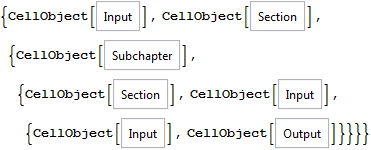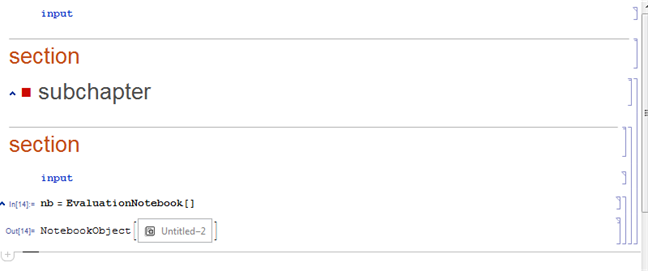So the question is how to get this kind of information:
from
This is one of my ideas:
get = Function[notebook,
Block[{i = 0, cells},
cells = Cells[notebook];
# /. _Cell :> cells[[++i]] (*a*)
] & @ Block[{Cell, cells, i = 0},
Cell[CellGroupData[c_, ___], ___] := c;
First @ NotebookGet[#]
] & @ notebook
]
(*Ad a: We are using ReplaceAll instead of Cell[___]:=cells[[++i]] because
we want to avoid counting inline cells. We also have to do this in separate Block so
Cell[CellGroupData will be flat already.*)
But NotebookGet is not so fast, the bigger the notebook the slower, obviously. For help notebook it takes about 2 seconds. Far to much in my opinion.
get[help] // AbsoluteTiming
On the other hand it is quite compact and deals well with InlineCells, nondefault CellGrouping or custom cell styles.
So is there faster alternative? It doesn't even have to deal with non standard cellgrouping etc.



